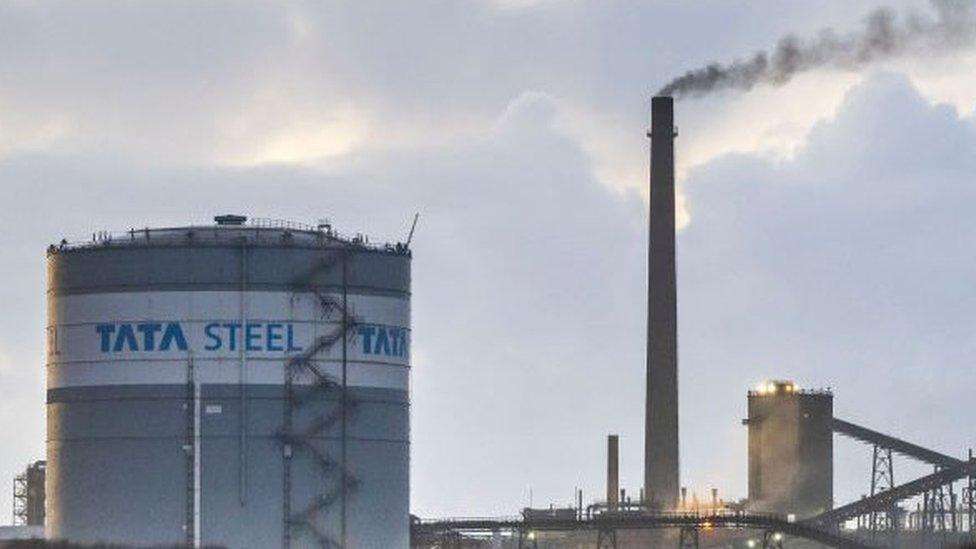Climate change: Call to help steel firms decarbonise more quickly
- Published
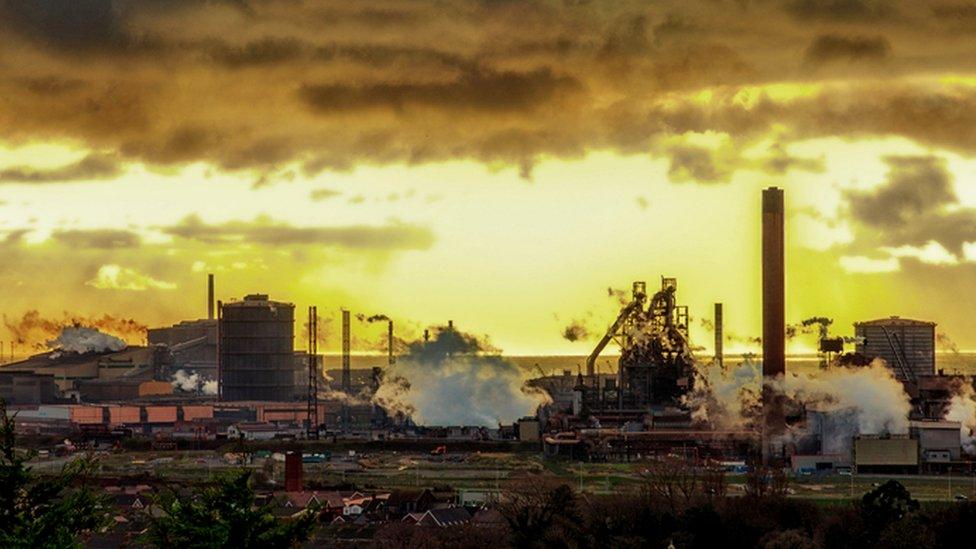
Steel is currently responsible for 14% of the climate-warming gases produced by UK industry
The UK is being too slow to help its steelworks transition to greener ways of working, senior MPs have warned.
It could jeopardise the industry's future here and make the country more reliant on imports of steel, they said.
Their report follows calls from the owners of the UK's biggest steelworks in Port Talbot for a government "route map" to help the sector decarbonise.
The UK government said it had several schemes which were supporting the industry's move to a low-carbon future.
Steel is currently responsible for 14% of the climate-warming gases produced by UK industry.
But to help build things like wind turbines and the cleaner, electric vehicles of the future, more and more will be needed.
Parliament's Environmental Audit Committee carried out an inquiry into the options available for steelworks to decarbonise.
These included using hydrogen instead of coal, a greater reliance on recycling scrap steel, or trapping carbon dioxide before it's emitted to the air.
The MPs concluded that UK government initiatives to advance these technologies "lacked ambition" compared with other countries.
Steel bosses said during the inquiry that unless ministers came forward with a clear strategy and funding to drive progress, the industry risked "further contraction".
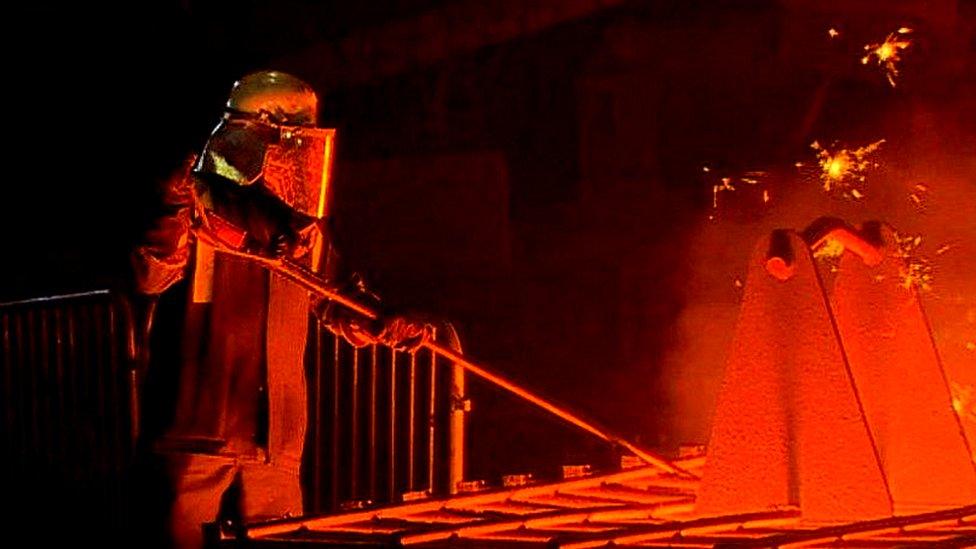
Tata Steel employs about 6,600 people in Wales
Tata Steel, which runs steel plants in Port Talbot, Newport, Llanelli and Shotton, in Flintshire, has previously told BBC Wales "revolutionary" government policies were needed to help them decarbonise.
At Port Talbot, emission reductions are being achieved through recycling scrap steel back into the liquid steel, with experiments also ongoing into carbon capture technologies.
But in order to do something really big about the site's unenviable position as Wales' biggest CO2 emitter, they have suggested a clearer signal is needed from government about which route to take.
For instance, the report said Port Talbot's location, far from potential geological storage sites for captured CO2 under the North Sea, meant getting carbon capture technologies up and running there was "more complex".
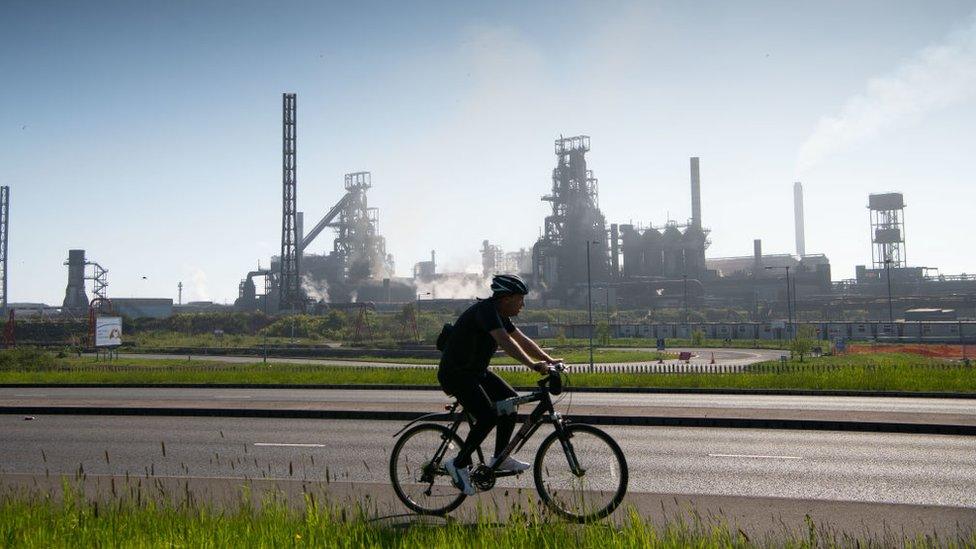
Tata Steel has been calling for "revolutionary" government policies to help them decarbonise
Work to try and establish the area as a potential transportation hub for CO2 - from a range of local industries that could be sent by boats to be buried at sea - is under consideration.
The committee has asked the UK government to set out whether Port Talbot is likely to be chosen to take part in a scheme to develop a series of "clusters" for advancing carbon capture utilisation and storage (CCUS).
If not, the MPs want ministers to spell out how they will support the deployment of alternative green technologies at the site.
Last year, a Swedish project delivered the world's first shipment of so-called "green steel" - made using hydrogen instead of coal.
Catrin Ellis Jones, of Vattenfall - one of the firms involved - recently told BBC Radio Cymru it would be "incredible" to see something similar take off in south Wales.
Dr Chris Williams, of Industry Wales, said industries, including the steel sector, were "delaying decision-making" on decarbonisation as they waited for "clear policies" from the UK government in areas such as energy costs, hydrogen supply and carbon capture infrastructure.
He said there was a "real risk" firms would decide to leave south Wales for "parts of the world that are clearer in what their policy plans are".
But companies including Tata told the EAC committee that "uncertainty surrounding the abundance and affordability of future hydrogen supplies" limited their confidence in investing in this way of working at the moment.
High electricity prices were also hampering moves to put more of a focus on melting down scrap steel in electric arc furnaces.
The committee called on the government to say whether it would offer a specific deal for steelworks to help with energy costs.
"As technologies advance in other countries, a way must be found to decarbonise the [steel] sector for Net Zero, external Britain," said committee chairman Philip Dunne MP.
"The government must set clear demand signals and invest properly in research and development so that the industry can adopt alternative methods to manufacturing steel that is not such a carbon intensive process."
The Department for Business, Energy and Industrial Strategy (BEIS) said the government was "working closely with the sector... in a way that supports competitiveness, jobs and clean growth".
"Our ongoing support for the sector's low-carbon transition includes the £315 million Industrial Energy Transformation Fund, external, £1bn to support the deployment of carbon capture, and £240 million to drive UK hydrogen production," it said.


- Published7 May 2022
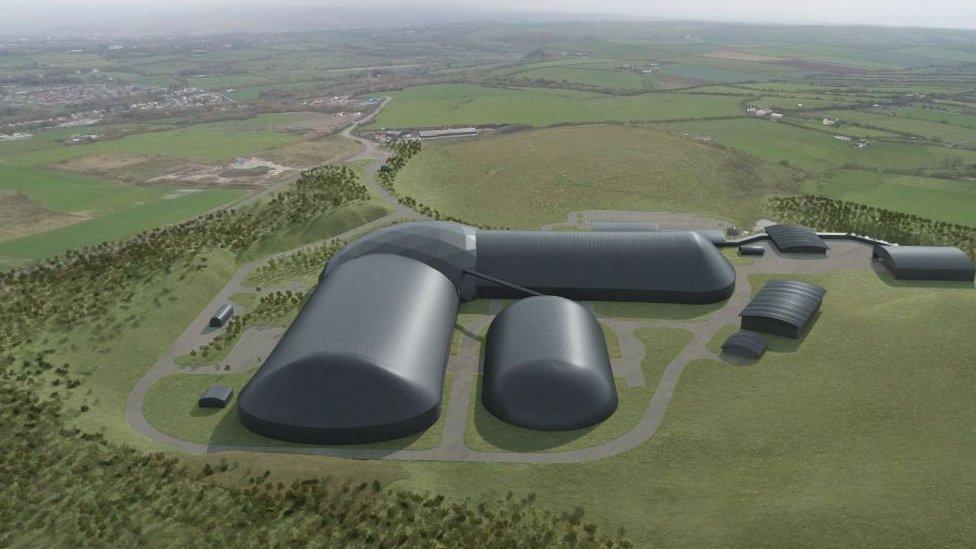
- Published25 October 2021
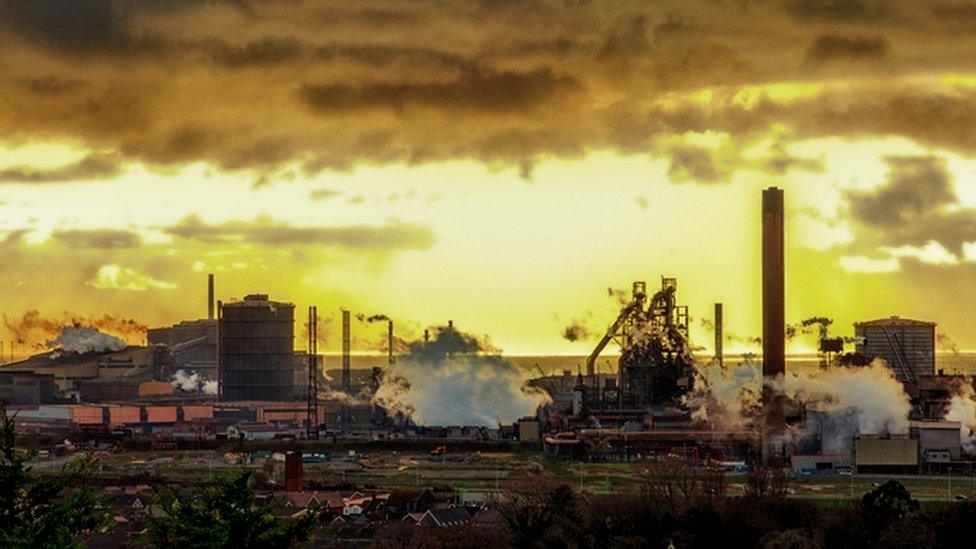
- Published18 October 2021
